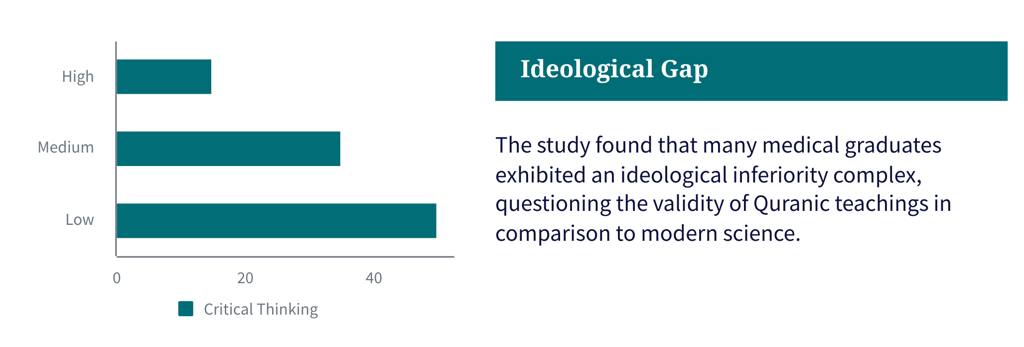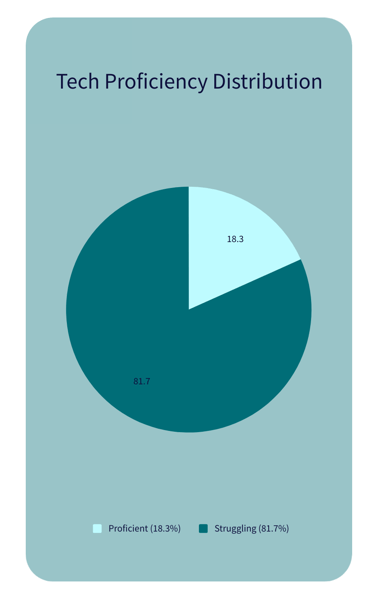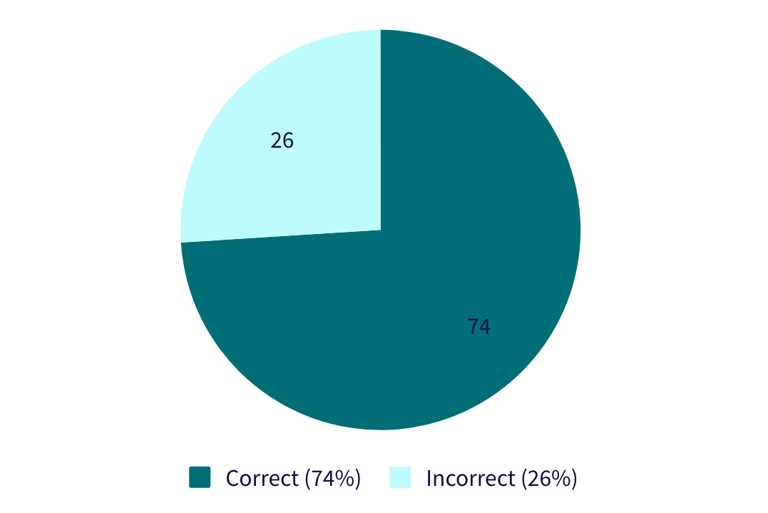Al Hadid is Platform for Muslims Empowerment in every field of life.
The Intellectual Crisis Among Medical Graduates: A Research-Based Analysis of Al Hadid's November Free Course Initiative
Muzammil Ramzan
12/2/20243 min read


Abstract
In November, Al Hadid launched a free research-oriented course for medical professionals to assess their intellectual capacity and understanding of Islam as a comprehensive system of life. Out of 816 registered participants, approximately 70% were females and 30% were males. Despite all being Muslims, the results revealed a concerning disconnect between professional education and Islamic teachings. This study sheds light on the challenges faced by medical graduates in integrating their professional knowledge with Islamic principles.
Introduction
Medical professionals are regarded as some of the brightest minds in society. This research, conducted during Al Hadid’s free course, aimed to evaluate their intellectual capabilities and assess their ability to view Islam as a holistic system. The initiative sought to merge Quranic philosophy with contemporary medical science, testing participants’ critical thinking, technological literacy, and ideological alignment with Islamic principles.
Methodology
The course was open to students and professionals from various medical fields, including MBBS, BEMS, DPT, Pharm D, and Nursing. The participants were primarily females (70%), while males constituted 30%. Data collection tools included Google Forms for registration, quizzes, and surveys, alongside interactive WhatsApp discussions and classroom activity monitoring.
Results
Demographics and Participation
Total Registrations: 816 participants, with a gender distribution of 70% females (570) and 30% males (246).
Educational Backgrounds: Fields of study included MBBS (3%), BEMS (37.7%), Pharm D (8.7%), DPT (6.4%), and others HND and Nursing (46%)
Professional Status: 68% students and 32% professionals.
Technological Proficiency
Digital Literacy Gaps: Only 150 participants (18.3%) were proficient in using platforms like Google Classroom and Zoom, while the remaining struggled with basic tasks such as submitting assignments or attending live lectures.


Quiz and Assignment Analysis
Quiz Completion Rate: Out of 816 registrants, only 362 participants (44.4%) attempted the quiz.
Islamic Perspective Understanding: Of those who attempted the quiz, 268 participants (74%) correctly identified Islam’s position on disease and cure, while 94 (26%) answered incorrectly despite prior detailed explanations.
Assignment Submission: Many participants either failed to submit assignments or misunderstood submission processes, reflecting poor engagement and technological challenges.


Feedback and Engagement
Lecture Attendance: Of the 400 regular attendees, only 150 demonstrated consistent understanding, while 250 exhibited low engagement.
Critical Thinking Deficits: WhatsApp feedback revealed a recurring theme of participants questioning the scientific basis of Quranic principles, with statements such as, “Is this scientifically proven?” reflecting a disconnect between faith and science.
Insights from Feedback
Ideological Inferiority Complex: Participants expressed skepticism about Quranic teachings, often comparing them unfavorably to modern science.
Missed Opportunities: Despite clear instructions and multiple reminders, many participants remained unaware of class schedules and course content.
Discussion
The findings highlight an intellectual and ideological crisis among Pakistan’s medical graduates, who are often considered the intellectual elite. The study identifies three core challenges:
1. Technological Illiteracy: Most participants lacked basic digital skills, hindering their ability to participate effectively in the course.
2. Disconnect from Islamic Teachings: The inability to integrate Quranic principles with professional knowledge underscores an ideological inferiority complex.
3. Low Critical Thinking Skills: Participants struggled to engage with advanced concepts, reflecting a failure to develop analytical and reasoning abilities.
Statistical Insights
Gender Imbalance in Engagement: Female participants, despite being the majority, showed similar patterns of disengagement as their male counterparts.
Field-Specific Trends: BEMS and MBBS participants demonstrated slightly higher engagement levels compared to other fields.
Broader Implications
These findings raise serious concerns about the intellectual readiness of medical professionals to lead in a rapidly evolving world. The lack of critical thinking, technological proficiency, and confidence in Islamic teachings reflects a broader societal decline.
Conclusion
The research reveals an urgent need to revamp educational systems to integrate Quranic principles with modern knowledge. Medical professionals must be equipped not only with technical skills but also with the ideological clarity and critical thinking necessary to lead ethically and intellectually.
Recommendations
1. Curriculum Reform: Introduce Islamic philosophy alongside scientific education to foster a holistic understanding of both.
2. Digital Skills Training: Incorporate technological literacy programs in medical curricula to prepare graduates for modern challenges.
3. Critical Thinking Development: Encourage analytical reasoning through interdisciplinary courses combining faith and science.
Final Reflection
This study underscores the necessity of intellectual revival rooted in Islamic principles. The Quran, as the ultimate guide, must be central to all scientific and intellectual pursuits. Only by embracing this approach can the Muslim Ummah reclaim its legacy of knowledge and innovation.
